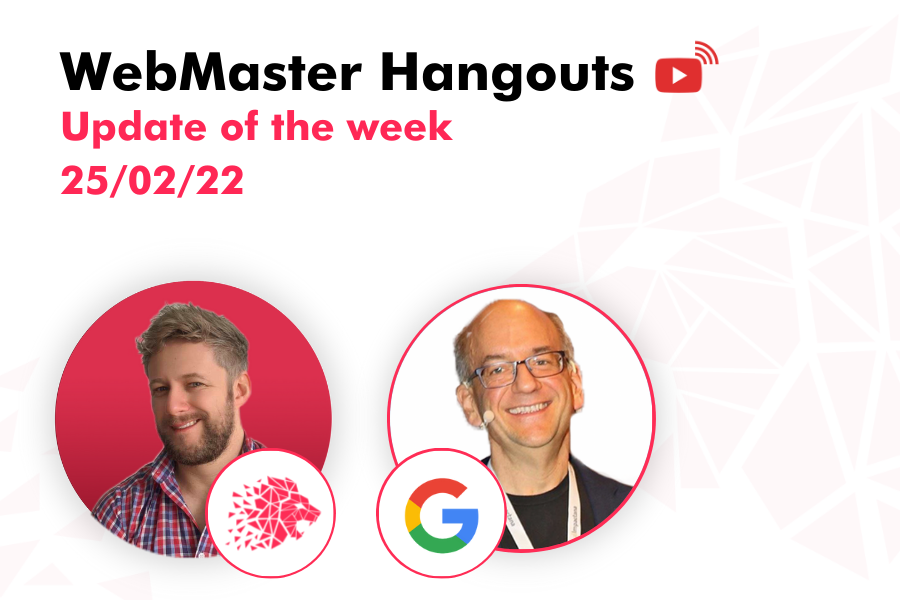
Sub-Feature Which Is Present in Google
Q. If a link for any of [Big Query] if a particular URL has been ranked at People Also Ask, is it counted as a click or impression? And how that feature has been added to the Search Console part is it tracked or monitored? If the users click on some other questions then your query gets added to that particular list? How is this thing monitored or calculated?
- (01:39) Whenever there is a URL shown in the search results, we do try to show that in the Search Console. With the People Also Ask sections, if you expand it then it shows a link to your site with that question and the snippet there. That means whenever someone expands that People Also Ask section and sees the URL for your site, then that is counted as an impression and it doesn’t matter if you’re kind of the first one in the People Also Ask, or if people clicked 15 different ones and then suddenly yours shows up that would be counted as an impression. And also, when a click happens, that gets counted as a click. The ranking, the position is based on the overall position of that group of elements. The Search Console — the only thing to watch out for so the performance reports shows the ranking of the topmost items. So if different URLs are listed multiple times in a search page results, it tracks the position of the first one.
Sub-Domain for Google Search
Q. When you have subdomains it could be a blog or a help forum or resources, how good is Google to recognize this subdomain it’s not a different one but it’s a subsidiary of this particular domain?
- (04:34) Specifically around the links there, I don’t think we would differentiate that much. It’s not that we would say, this is an internal link or an external link. It’s essentially just we found this link from this one page. From our point of view, those are just pages essentially. We don’t say this is a home page or this is kind of a product page or category page. We essentially say just this is a page and this is what it’s relevant for.
Search Console for New Website
Q. In the Search Console I do see at least one link from the former owner that’s still there. Does that mean that this link would actually still count as Search Console does show it?
- (06:27) I don’t know if it counts. But the important part with Search Console and the link report there’s we try to show all the links that we know of to that site. It’s not a sign that we think these are important links or that they count. So, in particular things like no follow links they would still be listed. Disavowed links would still be listed. Links that we just ignite for other reasons they could still be listed as well. So just because it’s listed doesn’t mean it’s actually a relevant or helpful link on the site.
Building Mobile Site on Amp
Q. Will it be still cached by Google the same way as a site with an AMP version would be and it would appear in search results in the Google Cache Viewer? What happens if there is an error that invalidates the page? Will it just not be shown at all in the search results?
- (07:37) So I think you need to watch out for the difference between having pages that are purely on AMP and pages that are kind of this paired setup. And if a page is purely on AMP from our point of view it’s essentially a normal HTML page. It can also be a valid AMP page. And if it is a valid AMP page, then we can use the AMP cache and all of the AMP functionality in search as well.
Internal Links in Footer Section
Q. Is it likely to be seen as problematic by Google because the links are not contextual?
- (09:49) Most parts that wouldn’t cause any problems. I would see this more as these are links on these pages. They’re normal internal links. For example if you have a larger website and essentially every page is linked with every other page, there’s no real context there. So it’s hard for us to understand what the overall structure is, which of these pages is more important. Because if you’re linking to everything, then it’s like everything is not important. So that’s the kind of element that I would watch out for. Whether or not they’re in the footer from my point of view it is irrelevant. If they’re generated by a plug-in or added manually, I don’t think that matters either. I would just kind of watch out, from a structural point.
Hidden and Invisible Text
Q. The support doc about the topic addresses the intent to deceive or trick bots by including excessive keywords to establish tropical relevance. Is all hidden text against webmaster guidelines?
- (14:36) I don’t think that would be problematic. Hidden text, from our point of view, is more problematic when it’s really about deceiving the search engines with regards to what is actually on a page. So the extreme example would be that, you have a page about shoes and there’s a lot of hidden text there that is about Olympics or something like that. Then suddenly your shoe page starts ranking for these Olympic terms but when a user goes there there’s nothing about the Olympics and that would be kind of problematic from our point of view. We do a reasonable job in recognizing hidden text and trying to avoid that from happening but that’s kind of the reason we have this kind of element in the webmaster guidelines.
Page Performance
Q. We want to improve page performance with some metrics like LCP,FID. We want to change the way of loading description and some reviews content from synchronous to asynchronous on user guide. But for the Googlebot side this content will still be synchronous. Do you think when we’re doing this, it will have any impact to the site from the SEO side?
- (24:16) That’s essentially similar to the dynamic rendering setup that we used to recommend, where you use JavaScript for the client side and you statically render the content for Googlebot and other search engines from our Google it is the same content you’re just delivering it in a slightly different way that’s perfectly fine.
Indexing, Image File Names & Ranking
Q. Do you care about image search? Will image alt text and captions be sufficient for Google to understand without an appropriate image, file name and title?
- (24:59) We’re using an intelligent CDN provider which has been replacing the image file names with unique numbers and noticed that all the images are 404s in the Search Console. Disabling the CDN would significantly degrade overall site performance. There are also two things that I would look at, one hand if these are images that you need to have indexed in image search then you should definitely make sure that you have a stable file name for your images. Kind of the most important element here you don’t mention that these numbers or URLs change but sometimes these CDNs essentially provide a kind of session-based ID for each image. If the image URL changes every time we crawl then essentially we’ll never be able to index those images properly. Mostly because for images we tend to be a little bit slower with regards to crawling and indexing. So if we see an image once and we say we will just drop that image from our search results from the image ranking and essentially we’ll this image that we thought was here is actually no longer here anymore. For web search, we don’t need to be able to crawl and index the images because we essentially just look at the web pages. If all of the images were 404 all the time or blocked by robots.txt we would still treat that page exactly the same as if we were able to index all those images.
Search Results
Q. We’re still getting flagged for explicit content. Is there a way to get reconciled via Google? How do we go about this?
- (28:22) Most part, this kind of understanding of which content we would filter by SafeSearch is handled automatically. If we recognize that a site has changed significantly then we will treat it differently in search results as well. We will remove that SafeSearch bit for the site or for those pages depending on when you made this change. It might be that you just need to be a little bit more patient and it’ll settle down properly.
Same Keyword on Two Different Pages
Q. Is it okay to target the same main keyboard on those two different pages?
- (29:51) Whatever keywords that you want from our point of view we’re not going to hold you back. There are guidelines that you should not do this but it’s more that if you have multiple pieces of content that are ranking for the same query with the same intent then you’re essentially kind of diluting the value of the content that you’re providing across multiple pages. That could mean that these individual pages are not that strong when it comes to competing with other people’s websites. If you have two pages and they’re both targeting the same keyword and they have different intents then that seems kind of reasonable because people might be searching for that keyword with extra text added for one intent and extra text added for other intent. They’re essentially unique pages.
SEO Rankings, Filtering & Sorting
Q. How does Google treat these pages within the website? How do the search results affect the overall ranking? Is it enough to submit sitemaps for ranking? Or we should take additional consideration to help Googlebot to gather all of the returnable URLs?
- (37:58) The last question, I would not rely on sitemaps to find all of the pages of your website. Sitemaps should be a way to give additional information about your website. Internal linking is super important and something you should definitely watch out for. Make sure that you set things up when someone crawls your website. They’re able to find your content and not rely on the sitemap.
Poor Core Web Vitals
Q. My website had a drop in visitors due to poor Core Web Vitals. What page experience ranking to desktop? How important is it compared to the other ranking factors?
- (42:40) The Page Experience ranking factor is essentially something that gives us a little bit of extra information about these different pages that could show up in the search results in situations where we have strong, clear kind of intent from the query where we can understand that they really want to go to this website then from that point of view we kind of can ease off using Page Experience as a ranking factor. If all of the content is very similar in the search results page then probably using Page Experience helps a little bit to understand which of these are fast pages or reasonable pages with regards to the user experience. Less reasonable pages to show in the search results. With that kind of situation helps us with the desktop rollout, I believe this is going to be a slower rollout over the course of something like a month which means you would not be seeing a strong effect from one day to the next but rather you would see that effect over a period of time.
Ranking Signals
Q. How important is it compared to other ranking signals?
- (44:52) Websites would not see a big visible change when it comes to the Core Web Vitals. Even if your website goes from being kind of reasonable to being in that poor bucket in the Core Web Vitals from one day to the next I would not expect to see that as a kind of a giant change in the search results. Maybe changing a few positions seems kind of the right change there. But I would not see it as a page going from ranking number 2 to ranking number 50. If you are seeing a drastic change like that I would not focus on purely Core Web Vitals. I would step back and look at the overall picture and see what else could be involved and try to figure out what you can do to improve things overall.
Validating & Building Schema
Q. I’m building out schema and doing it exactly like it should be done.But when I go over the Rich Results Test for Google it doesn’t validate. When I go to Google Search Console it’s not showing up. What should I do to actually get this to validate?
- (49:00) There are two main things that play a role. ONe hand the validator schema.org is set up to validate theoretical schemes that you can provide with schema.org The validator in Search Console is based purely on functionality that has visible changes in Google Search and that’s usually very small subset of the bigger scheme.org set of things that you can mark up. Example you are making things up that don’t have a visible effect in the search results in terms of maybe it starts, shows video or something like that then that would be something where Search Console would say I don’t see anything here which might fall into that category that you’re seeing there. Sometimes plays a role with regards to elements that do have a visible effect on schema.org the requirements are sometimes not the same as in Google Search. So it will have some required properties and some optional properties and it kind of validates based on those Google Search sometimes we have stricter set of requirements that we have documented in our Help Center as well. So from point of view, if Google doesn’t show it in the search results then we would not show in the testing tool and if the requirements are different, Google’s requirements are stricter and you don’t follow these guidelines then we would laso flag that as I don’t know.
Sign up for our Webmaster Hangouts today!








